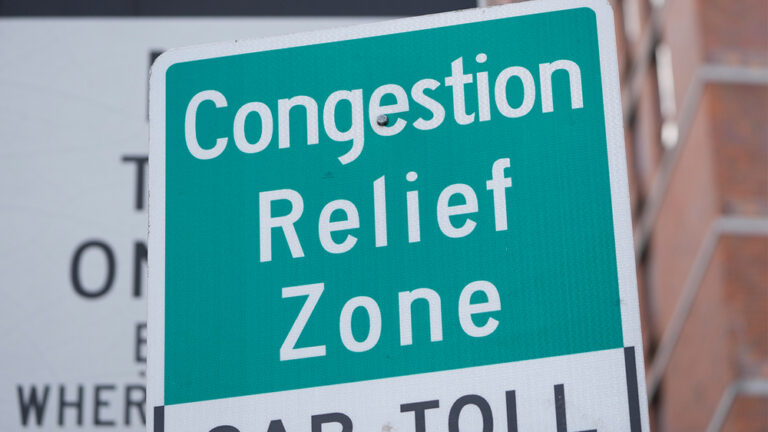Congestion Tolls Here to Stay Till At Least October: Court
NEW YORK—Court documents filed recently with the federal court in the legal battle between the federal government and the Metropolitan Transportation Authority concerning the controversial congestion pricing program in New York City reveal that any court ruling will likely not be handed down until at least October 2025.
An April 4 letter to U.S. District Court Judge Lewis J. Liman stated that the federal government, who has previously ordered the MTA to cease collecting the congestion pricing tolls, the MTA and New York City Department of Transportation have agreed to a timeline of the filing of various motions, including motions to dismiss, which will no doubt delay any court ruling into October of this year.

The timeline for legal maneuvers renders moot the back-and-forth battle between U.S. Transportation Secretary Sean Duffy and New York Gov. Kathy Hochul. On Feb. 19 he wrote the governor purporting to “terminate” the agreement authorizing the Congestion Pricing program. A month later, he said he would extend the deadline for New York City to end its congestion pricing program through April 20.
Meanwhile, the Riders Alliance and the Sierra Club filed a new legal complaint against the Trump Administration’s Department of Transportation for attempting to end New York City’s long-awaited Congestion Pricing program. The legal complaint charges that the Trump administration made serious legal mistakes in its rush to deprive New Yorkers of the benefits of Congestion Pricing, and that these mistakes suggest that the administration is acting pretextually. The groups filed to join the MTA’s lawsuit in the U.S. District Court for the Southern District of New York as interveners.
The MTA released two positive reports for January and February showing that revenue from congestion pricing had exceeded its expectations. The Metropolitan Transportation Authority announced on March 24 that from Feb. 1 through Feb. 28, tolls from the Congestion Relief Zone (CRZ) generated $51.9 million in revenue with a net after expenses of $40.4 million. This keeps the program on track to provide the $500 million that was initially projected, MTA officials stated.
Published: April 9, 2025
